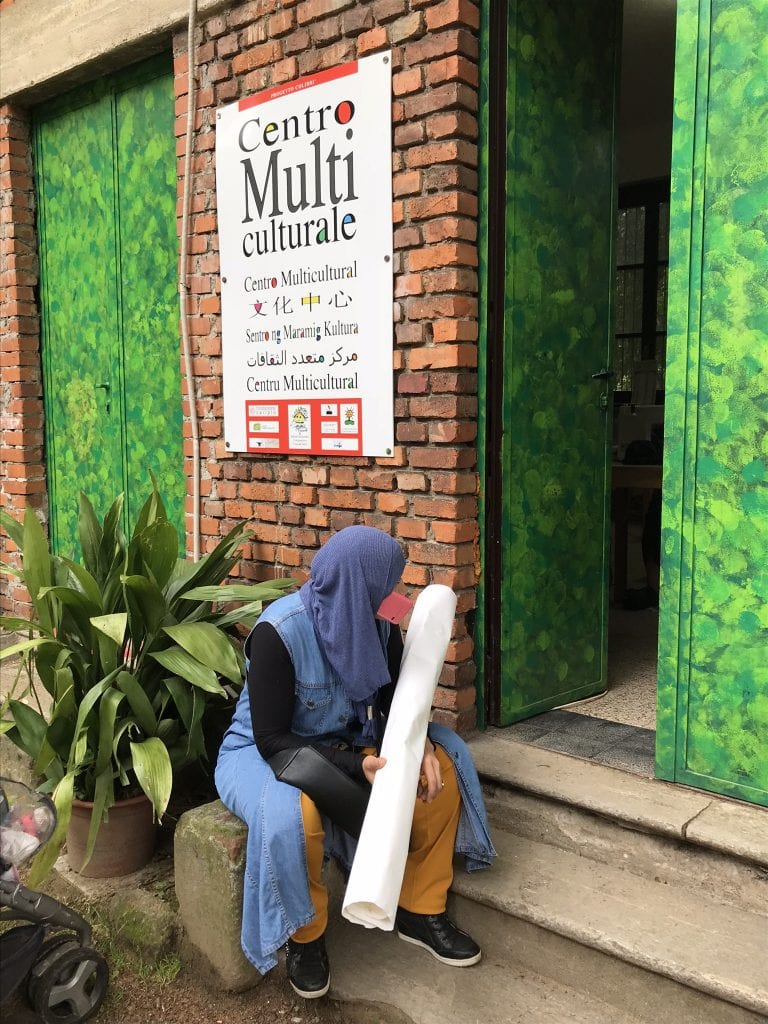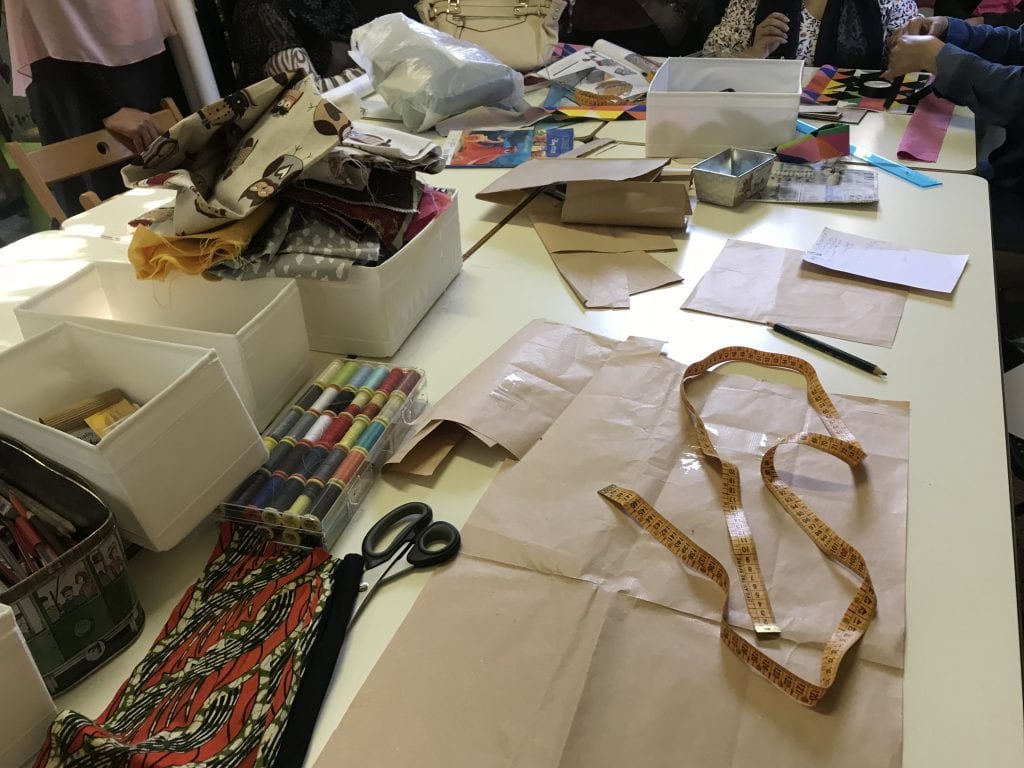Fare insieme: making and doing things together in Milan
By Shireen Walton, on 6 November 2018

Photo (CC BY) Shireen Walton
In Italian, the word fare, means to do and to make. Doing and making appears to be a fundamental aspect of community life here in this inner-city neighbourhood in Milan’s zone 2, which constitutes the locus of my fieldwork. A number of activities, events and organisations I am involved in entail inter-generational and cross-cultural mixing, including retired Italians from Milan and the south of Italy, and foreign migrants and their children. These interactions centre around the sharing of skills and knowledge; from Italian language learning to a variety of artisanal crafts, and forms a subtle yet significant part of how social capital is shared and acquired here.
One particular hub for this is the Centro Multiculturale; part of a non-profit organisation, La Città del Sol: Amici del Parco Trotter, established in 2009 to support the wider community life of the state school in Parco Trotter, with which it is associated.

The school-community in Parco Trotter, Milano. Image: La Città del Sol: Amici del Parco Trotter
The Centro Multiculturale is run by community volunteers and teachers, envisioned and operating, year in year out, as a social space (‘spazio socialità’) for women, including mothers of children of the school and the broader neighbourhood. Housed in a small unassuming building in a corner of the park next to a main railway line, the Centro runs Italian classes for foreigners, a weekly sewing group, as well as a weekly open drop-in meeting where women of all ages and backgrounds participate in a range of activities, do exercise, drink tea, and learn about a range of bureaucratic aspects pertaining to life in Italy such as medical facilities and healthcare.

Centro Multiculturale, Parco Trotter. Photo (CC BY) Shireen Walton
The ethnographic make-up of the Centre sees a blend of ages, backgrounds and ethnicities (mostly Egyptian, as well as other nationalities such as Peruvian, Indonesian, Pakistani, and Tanzanian), including retired, middle-aged and more senior Italian women volunteering as Italian language teachers, sewing instructors and exercise class instructors, shifting between roles as facilitators, teachers and participants. The general spirit is one of fare insieme – making and doing things together.

Photo (CC BY) Shireen Walton
Through the Centro, the different women experience a blend of social and personal purpose, including, notably the passing on and sharing of skills. Anna (70), Italian, retired, explained how the social make-up of the group and being around younger people in such a dynamic environment at her age ‘keeps me young and alive – it gives me a good feeling’. Coming to the Centro twice a week comforts Anna in her retirement, where she lives alone and her children are grown up and are busy with their own lives. Dahlia (35) from Egypt explains how the cucito (sewing) group at the Centro is a significant event in her week. ‘It means something for us to be together here. Many Mothers are at home all day with young children alone. It can get terribly lonely. Here there is the chance for us to meet and be together, practice a skill and share our time. Of course we are also here to get better at Italian!’ The issue of language learning and usage is a fundamental element underlying all the activities at the Centro.

Photo (CC BY) Shireen Walton

Photo (CC BY) Shireen Walton
All this is not to paint either a rosy or otherwise picture of integration in Italy; in some instances this kind of cross-cultural social care flourishes despite challenges, while in others it struggles to contend with deep-rooted political resistance and paradoxical and problematic logics. Anthropologist Cristina Giordano addresses these kinds of tensions exquisitely in her 2014 monograph Migrants in Translation: Caring and the Logics of Difference in Contemporary Italy based on long-term ethnographic research in Turin[i]. Giordano’s work describes complex relationships of care between Catholic nuns and foreign female sex workers from Eastern Europe and Northern and Sub-Saharan Africa, accounting for the different womens’ personal alignments and institutional ideologies, caught between religion-inspired notions of altruism and social care, discourses of purity, and moral judgement.
At the Centro in Milan, older Italians share craft-based practices like needlework to younger people, who appreciated the care and attention involved. This is especially pertinent given the current, xenophobic and populist political climate. What is most interesting here is how the different ages, life and technical experiences of the women work together, in the present context, while laying social and cultural foundations for the future.

Photo (CC BY) Shireen Walton

Photo (CC BY) Shireen Walton
References
[i] Giordano, C. (2014). Migrants in Translation: Caring and the Logics of Difference in Contemporary Italy. University of California Press.
 Close
Close




